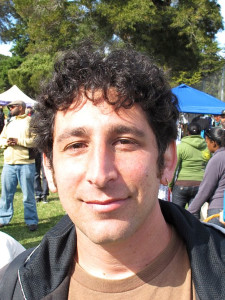9/8 Episode: COMMUTER COPS
If you live in a city, there’s a good chance the local beat cop that patrols your streets doesn’t live anywhere in the city–but commutes out to the suburbs when their shift is over. Some law enforcement agencies require officers to live in the same city they work in. It’s a controversial practice that dates back more than a century.
Andrew Stelzer reports from Oakland, California that the effectiveness of these laws is questionable and they are largely being left out of the current conversation about reforming America’s police.
Listen to Life of the Law‘s newest feature episode here.
![]()
Annie Campbell Washington was elected to Oakland’s City Council and took office this past January. Life of the Law’s Nancy Mullane talked with Washington about building trust between police and residents in a city where residency requirements for police officers are against state law.
WASHINGTON: It has been eight exciting months. It’s never a dull moment in Oakland, and I just love the city of Oakland. I love the people and feel like this is an amazing opportunity for me to serve.
MULLANE: In Commuter Cops, Oakland Police Officer Charles Stone says he’s decided to live outside the city of Oakland where he says his children can ride their bikes safely. What does that sound like to you?
WASHINGTON: I believe we need to be searching for the best individuals to serve our city as police officers. What does that mean? It means we need a diverse force because Oakland is one of the most diverse cities in the country. We really need to seek that out. We need to be serious about recruiting a diverse population. We need to recruit more women. That’s where we are putting our focus in the last few years in Oakland. How do we recruit additional African American police officers? How do we recruit additional Latino police officers? How do we recruit additional women? And in the most recent class, 28% of the recruits were Oakland residents. We had 25% African American recruits. I think it shows we are putting a real focus on diversity and recruitment of diversity. The reason I think it is so important you hire a diverse workforce is it automatically gives you a police force that can better understand the diverse neighborhoods that we have in Oakland.
MULLANE: If the State of California is saying you can not require that police officers live in Oakland, do you think people in Oakland accept that?
WASHINGTON: I think all of us would prefer to have more police officers live in Oakland than outside [the city]. I don’t think that it predicts a good police officer to know that they’re living in Oakland, but there’s a sense of wanting to see police officers in their daily lives. Because we’ve had historically strained relationships between the community and the police in Oakland, one thing that could help is having police officers actually live in the community and understand the community at that level, because you understand the community in a different way if your child is going to the neighborhood school and interacting with their neighbors in the evenings over neighbor things as well as work.Would I go as far as to say residency requirements would insure that we have good police community relations? No. I wouldn’t say that. So much more goes into strong community police relations beyond where the police officer lives. I wouldn’t want to have residency requirements only because I think it would mean that we would lose certain people. We would lose certain good individuals who either couldn’t afford to live in Oakland or didn’t want to live in Oakland, because at the end of the day, they want to turn off and go home.
MULLANE: What can you as a city councilperson do to bring Stone back?
WASHINGTON: That’s the biggest thing for me is making sure we’re building an Oakland where anyone who wants to live in Oakland can afford to live in Oakland. And that anyone who wants to live in Oakland and is living in Oakland feels safe and feels like they have an excellent school to send their children to. Those are the whole reasons why I’m doing the work that I’m doing. To go back to Officer Stone, we may not ever be able to bring every single police officer here to live in Oakland, which is why I don’t think a residency requirement is the right thing because there may be individual reasons, which is what I heard from Officer Stone. There are reasons why a police officer specifically might not want to live in the city where they’re working. But we want to keep as many police officers, as many public servants working in the city of Oakland, living in the city of Oakland as possible. And to do that we have to make sure they can afford to live there. That they’re safe in their neighborhoods and they have wonderful schools.
MULLANE: It sounds like the move forward is to take this opportunity of an influx of new funding, new economic opportunity in Oakland to create a safer Oakland. At the same time keeping it diverse. Not allowing gentrification to change the face and core identity of the city. That must be a real challenge as well.
WASHINGTON: Absolutely. What we’re really talking about, I believe, is systemic racism and to really make a change in certain neighborhoods is to state out loud, ‘We have failed in certain neighborhoods.’ We have not delivered services equitably across the city and those are the types of things that we’ll have to come together at the city government level to do. It’s challenging work but I think Oakland is the perfect place to lead on this. Oakland is the perfect place to say we have not done this well in the past. We recognize that neighborhoods that are predominantly black and brown [are neighborhoods] where services are not delivered. Where streets are not safe. Where schools are not necessarily successful and we must figure out a way to deliver services equitably. ![]()
Reporter’s Notebook: Andrew Stelzer
In the spring of 2014, reporter Andrew Stelzer sent a pitch for a story about whether the law should require police officers to live where they work.
“I cover the city of Oakland, city politics and grassroots activism and there’s long been tension between the police and the community, especially communities of color and the Black community here. And one of the things you often hear at the street protests is, ‘We need cops who live in the community.’ ‘We need cops who are from Oakland, not cops who drive in from the suburbs who patrol our neighborhoods and then leave at night.’
And you even hear that from politicians and people running for political office, ‘We need more cops who are from Oakland.’ So I started looking into, well, why aren’t there more cops that are from Oakland? And one of the things I found is that some cities do require their police officers to live in the city they patrol, but in California, there’s a state law banning those requirements, and that’s in part due to lobbying by law enforcement over the years who don’t want to be told where they can and can’t live. So I wanted to find out do these laws work? And if they work, why does California ban it? And for the conversation that’s taking place right now all over the country about how to improve policing, what role could residency requirements play?
I think like most people upon first hearing about this issue, it seemed to just make sense to me that a police officer who lives in the community they work in will be more connected to the people. They’ll know the people through their everyday, walking around, going to the store, seeing people on the block, so people will respect them more, they’ll understand the people more and there will be sort of, less of that tension that often exists between police and community members, so my assumption was that cops living in the community sounds like a really good thing.”
![]()
Audio Post: One woman’s hope for a very small house
Laws can protect the rights of some to live and work where they want. Laws in the form of regulations can also make it hard for people who live where they want to do what they want with their own property. City governments enact building and zoning codes to keep people safe and set community standards which can make it difficult to if you want to try something new.
![]()
LOTL Staff Review: The Diary of a Teenage Girl
When we first meet Minnie walking through a San Francisco park on a beautiful sunny day, her youthful innocence blossoms as she walks with an eager gait along the path. She’s just had sex for the first time and we’re right there with her as she strides along in her newfound sexuality. Sex is everywhere and it’s all a-glow. In these first few moments in the film, it’s easy to convince yourself this movie will focus on Minnie’s coming of age. The set-up is a film trope we know all too well: we’re meeting the main character when she is young so we can go along on her journey of discovery and watch her grow up. This is going to be great fun.
But not. Within a few short minutes, the movie diverges from this all too familiar path to a place we don’t expect a movie made in 2015 to take us. At least not as uncritically as the producers of this film have decided we’re all going to go.
Just fifteen and living through the height of San Francisco’s wild days, Minnie is young and vulnerable, but she has a maturity that belies her physical appearance. Her struggles are universal. She wants what she isn’t supposed to want and we can sit back in our comfy theater seats and identify. She could be any of us at any point in our lives.
Then it happens. As she explores her sexuality in a relationship with her mother’s boyfriend, we squirm seeing right before us on the big screen the difficulties and troubles she faces and likely will face in days, weeks and who knows for how long, wanting something so completely taboo and going for it. She falls hard. There are looks and lies. When her mother and all the players in her broken family let her down, she finds the intimacy she craves outside of blood ties. We understand. Minnie reminds us that we are all, regardless of our years, still young, and that we are pulling and pushing at boundaries as we grow up.
It is fascinating that millions of people will sit in theaters and watch a story about an act so illegal, if it were discovered, one of the characters portrayed by Alexander Skarsgard, would be sentenced to years in prison for a sexual offense that carries not just prison time but time in prison under protection.
With brilliant acting from newcomer Bel Powley playing Minnie, Kirsten Wiig as her tormented mother, and Skarsgard as their shared boyfriend, this movie is a must-watch. You can find it in theaters nationally. Send your review to connect@lifeofthelaw.org.
![]()
Stay tuned for next week’s LIVE LAW story: Prison Break Out
![]()
The law will never make men free. It is men that have to make the law free.
-Henry David Thoreau













